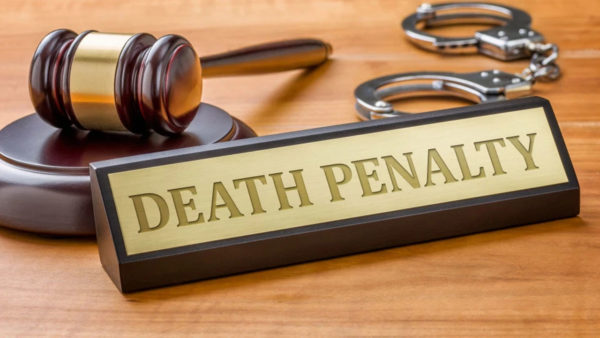As the world marked the 20th World Day against the Use of the Death Penalty with the theme “Death Penalty: A road paved with Torture”, two human rights groups, the Legal Defence & Assistance Project (LEDAP) and Human Rights Law Service (HURILAWS) have called on Nigerian government to put an end to the use of death penalty or limit its use to heinous crimes.
At a Zoom conference organised by the group in collaboration with the National Human Rights Commission (NHRC) on October 10, they argued that imposing death sentence on offenders has not reduced violent crimes, but has rather exposed the State to the high possibility of convicting and executing innocent persons.
The participants urged the government at Federal and state levels, in the meantime, to urgently introduce an official moratorium on death sentencing and execution, and improve the conditions of detentions of death row inmates. “The conditions under which prisoners sentenced to death are kept in correctional centres are very deplorable, inhuman and degrading,” they stressed.
Speakers included the national coordinator of LEDAP, Mr. Chino Obiagwu (SAN); the executive secretary, NHRC, Anthony Ojukwu (SAN); Partner at LRC, Nathaniel Ngwu; Programme manager, HURILAWS, Collins Okeke; Programme director, LEDAP, Pamela Okoroigwe and lawyer, Jude Igbanoi.
According to Obiagwu, due to the weakness of the criminal justice administration and its exertion against the poor, the imposition of death sentence and its execution involve processes that constitute torture, cruel, inhuman and degrading treatment.
He explained that allegations of armed robbery, which do not result in death, should not attract death penalty as many innocent people have been framed up by law enforcement agencies and sentenced to death for offences they knew nothing about.
He, however, suggested that death penalty should be limited to offences like premedidated murder and other heinous crimes.
“In nearly all jurisdictions of the common law world, the courts have found that use of the death penalty, and its method of execution, always amount to torture,” he said. According to Okeke, no one, not even the State, has the right to take life. “There is no justification for continued use of death penalty in Nigeria, especially, when it has no deterrence effect on offenders.
“In this year event marking the World Day against the use of death penalty, the theme focuses on the death penalty as torture. All aspect of the death sentencing and its execution, no matter how heinous the crime may be or the public outcry against violent crimes, are paved with torture.
“Our findings revealed that death row prisoners are subjected to two distinct punishments: the death sentence itself and the prolonged years of living in inhumane conditions that include poor health care, overcrowding, poor feeding and poor medical attention. Prisoners on death-row live in a state of constant uncertainty over their possible date of execution. For some death-row prisoners, the anxiety results in a sharp deterioration in their mental and emotional wellbeing,” he said.
This, he said, manifested in the case of Olatunji Olaide, who was exonerated by the Court of Appeal in 2018 after spending 24 years on death row. Olatunji, he added, died shortly after his release from prison due to his terrible ill health and untreated eye condition from prolonged detention.
Also, at the Zoom meeting, Mr Samuel Adebayo, 53, who was exonerated by the Appeal Court in February 2022 after 15 years on death row, narrated his story.
He explained that he was arrested for an offence he didn’t commit in Ikotun, Lagos, extremely tortured to admit the crime and sentenced to death based on his involuntary pre-trial statement. He stated that he is left without hope to restart his life, having lost everything including his health and family on his return.
According to the group, the story is similar to that of over 1,300 death row prisoners in Nigeria.
LEDAP and HURILAWS are particularly worried that the appalling prison conditions have serious damaging effects on the mental and physical health of the inmates.
These conditions, they claim, further infringe on their constitutional rights, particularly, right to human dignity and freedom from torture, cruel, inhuman or degrading treatment.
They believe that the human rights of death row inmates should be protected at all times, while the dignity of the human person must be preserved, both within and outside the prison walls.
Mrs. Okoroigwe said in so far as death penalty is disproportionately and discriminatorily applied mainly to the poor and disadvantaged people, it should be abolished.
“A Federal Government’s panel on death penalty in 2004, stated in its report that a justice system that cannot give justice should not take life. This conclusion is correct today as it was in 2004. There should be an immediate moratorium on use of death sentences at federal and state levels,” she declared.
Participants, therefore, called on the Nigerian Government to respect the sanctity of life, by taking immediate steps to abolish death penalty and replace same with term of years or life imprisonment, adding that the government should provide the necessary infrastructure and facilities needed to cater for the welfare of death row prisoners in the meantime.

